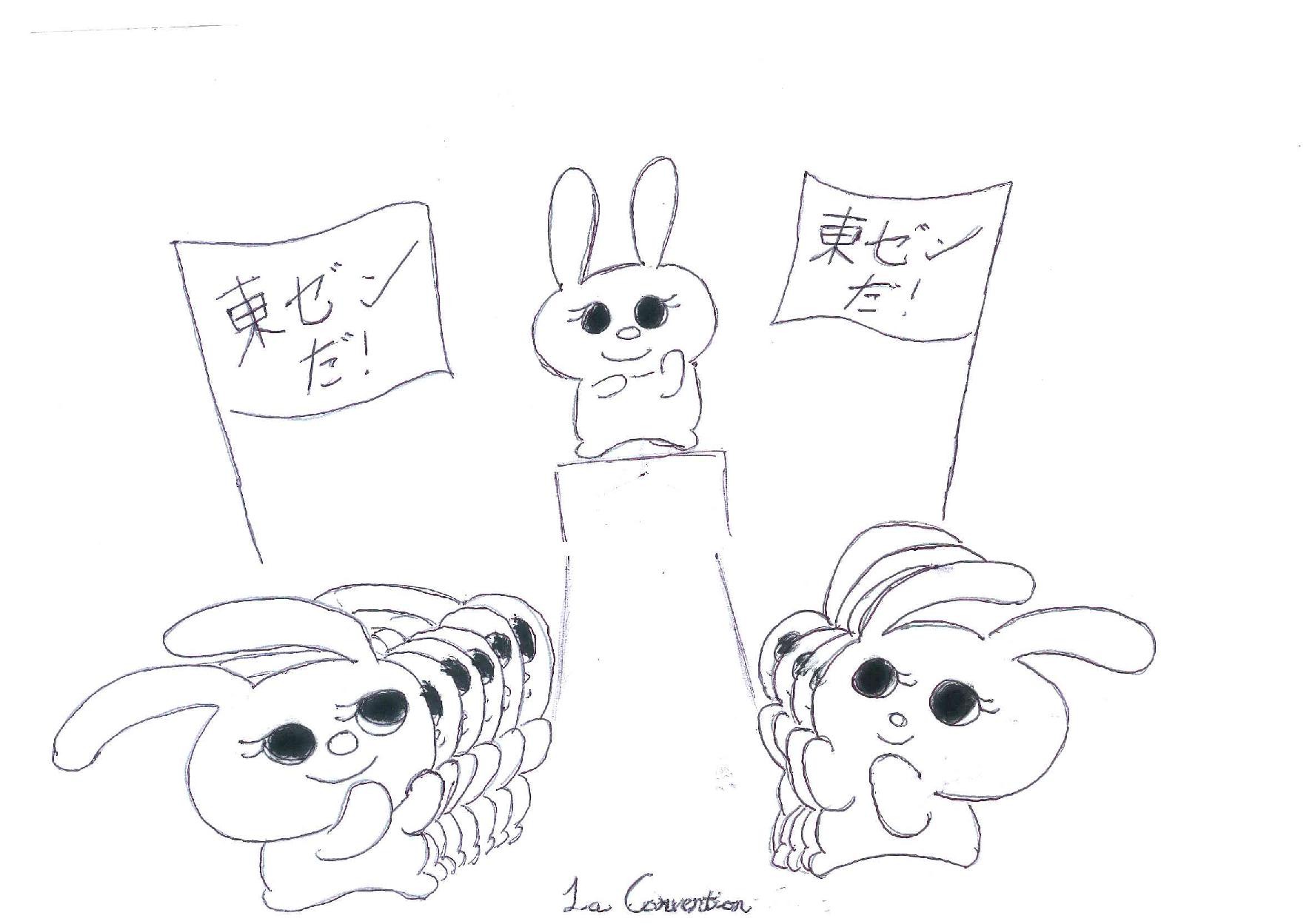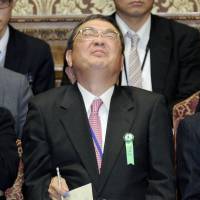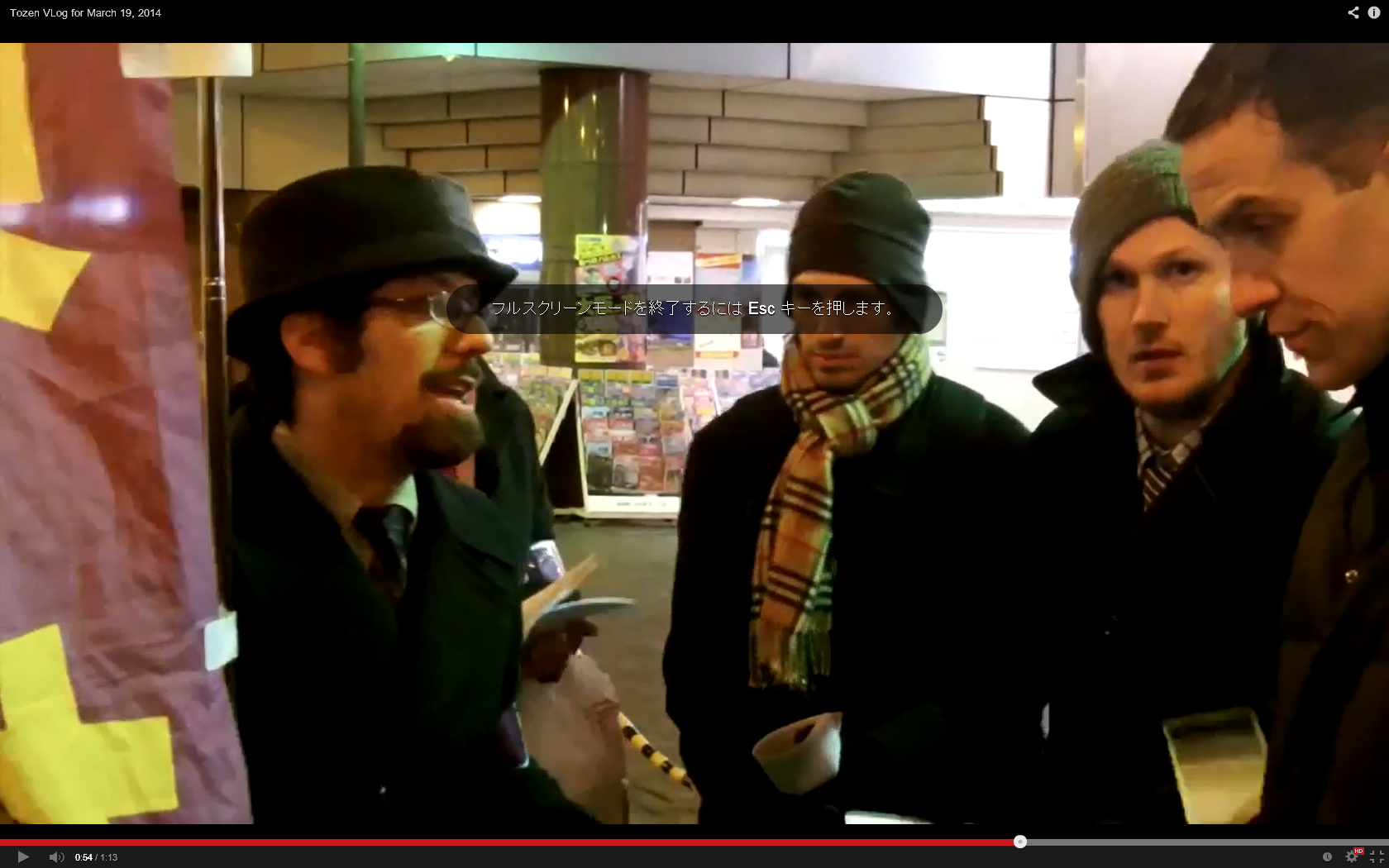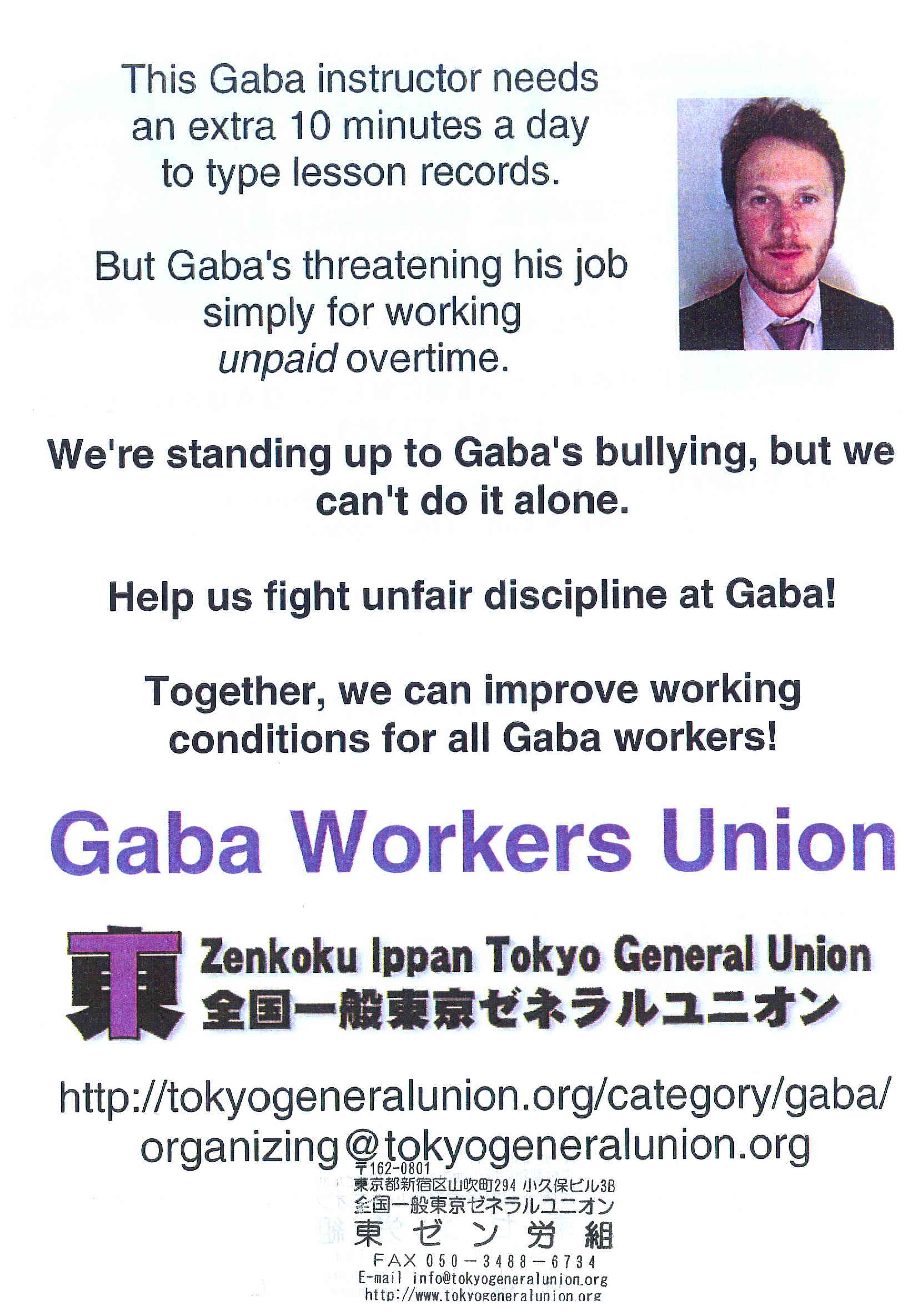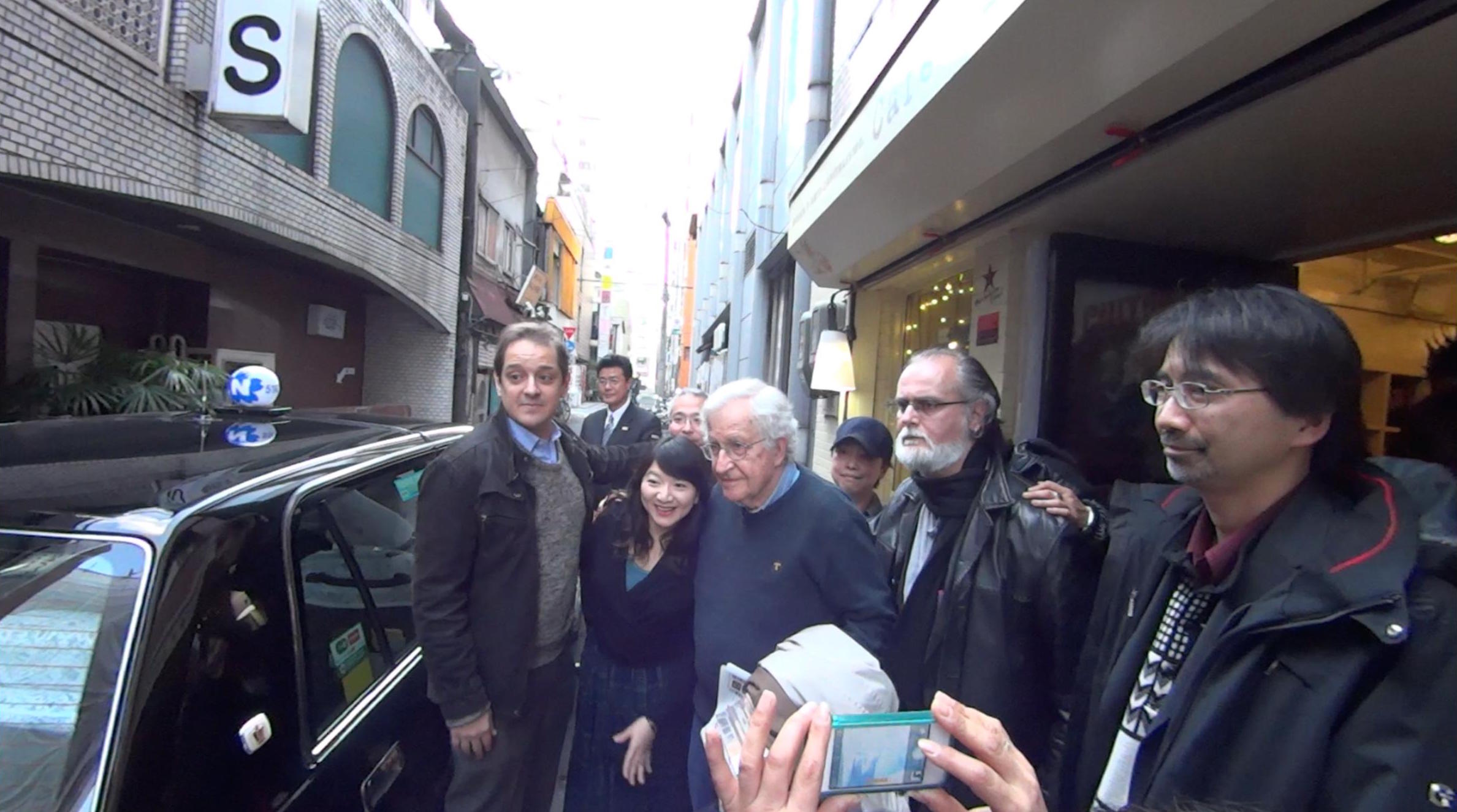Last Friday, Tozen GABA Workers Union took its first all day action against GABA’s threat to fire Tozen GABA Workers Union President Tyler Christensen.
We began at 6AM to leaflet GABA Shinagawa Learning Studio. We moved on to Gaba corporate HQ at 9AM. There as we handed out leaflets, GABA representative Satomi Odaka emerged from the building.
The union handed Mr. Odaka a notification of dispute, outlining the specific demands of our dispute. You can read about them here. Mr. Odaka responded by asking for our “road use permit,” which we don’t need, physically obstructing Case Officer Gerome Rothman and threatening to call the police.
GABA then took the step of calling the police in an attempt to shut down our protest. We explained to the police that we were conducting legitimate union activity. The police decided not to interfere.
We did a loud protest call with the megaphone, and concluded our action. After that, we filed a protest with the company demanding an apology for their obstruction of legitimate union activity. We demanded they follow the law and desist from interference with union activity.
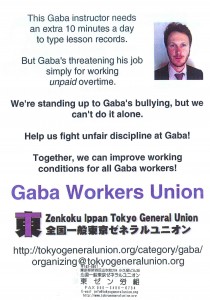
Tozen went to Yokohama Learning Studio, where Tyler works. During leafleting, Tyler spoke directly to his colleagues, sharing his story and drawing their support. He also took to the megaphone in an appeal to GABA management, asking them to “Let me do my job.”
GABA members and Tozen supporters wrapped up their protest at the end of the GABA work day, in Chiba. We leafleted at the Chiba Learning Studio.
Our first protest against GABA spanned 2 prefectures and the Tokyo Metropolis, 3 Learning Studios, and GABA HQ. We confronted a hostile management, and meaningfully engaged with sympathetic members of the GABA community.
We would love to think that a marathon fourteen hours of protesting GABA’s stubbornness will mean the end of our struggle for Tyler. We know, however, this is just the very beginning.
We need your help.
Tozen will not back down when its members are threatened with unfair discipline and attacks on their rights as workers. Tozen knows that all workers in Japan have the right to join a union, negotiate with management, and take collective action to improve their working conditions.
Join our fight. Let’s make GABA better for everybody.



